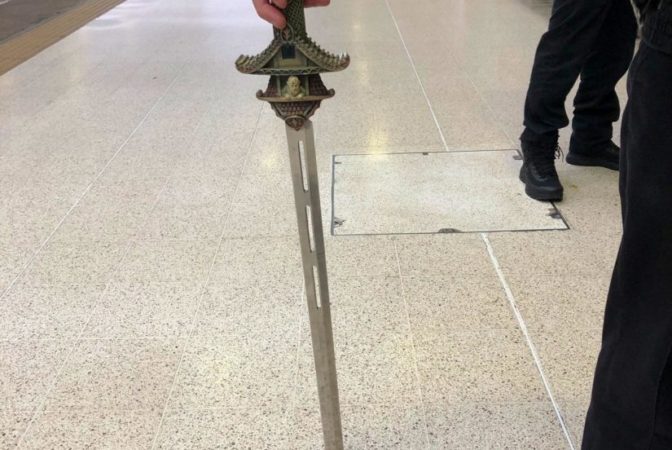If convicted of Grievous Bodily Harm you may receive a long prison sentence which will make it impossible for you to provide an income to support your family. If you don’t have any dependents, then your future career prospects could be adversely affected.
It is therefore understandable that anyone involved in a grievous bodily harm case would feel concerned about what the outcome might be.
It’s likely that you didn’t purposefully look to cause grievous bodily harm. It’s also possible that you didn’t assault anybody and are now being wrongly accused. Alternatively, you may have been put into these circumstances where this act was your own choice.
Whatever the situation, it’s vital that you get the legal support that you need immediately. Hiring the services of an experienced criminal solicitor can make all the difference. You will be supported legally and emotionally to get you through this difficult challenge. Your initial consultation will be free of charge.
Arrange a free consultationMore about Grievous Bodily Harm or GBH
The different legal classifications and terms involved are detailed below.
When classified as being committed with intent, the crime carries a sentence of life imprisonment. The same crime, when classified as committed without intent (section 20), comes with a maximum prison sentence of five years.
Grievous bodily harm or GBH is severe physical harm which may result in broken limbs or even psychiatric injury. GBH can be committed by wounding with or without intent to cause GBH.
When an offence falls under the ‘committed unlawfully and maliciously’ category, it means that there is no defence such as force used for preventing crime, self-defence, defence of another or defence of property.
When the term ‘wounding’ is applied, it means that the skin has been broken either externally or internally.
Section 18 is applied when grievous bodily harm has been done with the intent to cause severe injury, or wounding is used. If a weapon was involved, this makes the offence more grave.
Section 20 is grievous bodily harm without intent. For example, a person punched somebody, and they fell and caused a wound or severe injury, but that is not what was intended.
Whatever the circumstances, this is a very difficult situation to be in. You and your role will be investigated, and you are likely to be required to attend court.
Most importantly, it’s recommended that you engage a skilled criminal solicitor who can begin to prepare a strong defence and give you the best possible outcome.
Have you been falsely accused of Grievous Bodily Harm?
In some cases, people are accused of something that they haven’t done. If you have been charged in error, or incorrectly accused; it’s critical that you get in contact with a legal professional. The legal professional will work with you on either finding a way for the case to be dismissed or to craft a strong defence.
In this article, we aim to answer some of your questions and to provide you with the support and guidance that you need in deciding your next step.
What type of actions are considered Grievous Bodily Harm?
Here are some examples of grievous bodily harm that may have led to the situation at hand.
Visible disfigurement – this may be broken cheekbone, fractured skull, loss of sensory function or any other permanent disability including psychiatric injury.
Stabbing somebody – if the accused left home with a sharp knife and located and stabbed somebody, this would be categorised as GBH with intent. It may involve broken ribs, substantial loss of blood requiring a transfusion or other lengthy treatment.
Hitting somebody with a baseball bat – if an arm or rib is fractured or there is a wound.
Knocking down a police officer and driving over them – without a doubt, this is a very serious offence and could result in a heavy sentence of around nine years.
Using a broken bottle to hit somebody in the face – this is a serious offence and would result in imprisonment for around nine years.
Kicking the head of another person – obviously, a lot of physical and mental damage could be caused by this act. A prison sentence in accordance with the severity of the outcome would be issued.
What weapons might be used in Grievous Bodily Harm offences?
The following weapons are typically used in grievous bodily harm offences:
Bottles
Knives
Baseball bat
Throwing acid
Feet used to kick
Teeth for biting
What happens in a Grievous Bodily Harm investigation?
Grievous bodily harm is when the victim is seriously injured such as when they have been stabbed with a knife or other tool. It is recognised as being the most serious form of assault that can be committed by a person.
In summary, a serious crime of this nature is typically punished with as much as life imprisonment. However, the final sentence will be decided by looking at what the intent was, the level of violence applied and what the injury is. The previous history of the offender will also be considered.
Speak to an experienced lawyerYou may have been falsely accused of Grievous Bodily Harm
There are some situations where the wrong person is charged with grievous bodily harm. If you feel this has happened to you, then it’s vitally important that you seek the guidance of an experienced legal professional immediately. You will need to work with a solicitor to get your case dismissed.
Instruct a legal professional as soon as possible
We recommend that you do not attend a police interview without the support of a criminal solicitor. However, if you were to do so, you’d be taken to a room for formal interviewing by investigation officers. They will record your meeting to capture further evidence to use against you in court.
You may have attended a police interview with a duty solicitor (one appointed by the Government). Duty solicitors are paid a low fee to attend the interview and may not have experience of dealing with cases like yours. They may simply advise you to answer “no comment” to all questions which could possibly harm your defence later if you have to go to court.
By engaging an expert criminal solicitor before being interviewed, you will make it possible to access information about your charge. Your solicitor can then start to develop a strong defence to give you some protection. Typically the interview questions will be very probing. You may even be shown the evidence that has been gathered by the prosecutors to prove their case.
What should you do if you get arrested or charged with Grievous Bodily Harm?
Hiring specialist legal help gives you some peace of mind. You can request a lawyer to visit you at the police station. After that, they can work on getting you the best outcome. A skilful criminal solicitor may even help to prevent you from having to go to court at all or suffer the experience of being imprisoned.
Can the police search my home?
A primary goal of the police will be to collect evidence. Consequently, they as law enforcement officers will seek permission from a magistrate or a judge to search your home, car, place of work or business.
In summary, the purpose of the search will be to look for incriminating evidence against you. This may include text messages, details of telephone calls, evidence of your whereabouts at crucial times and weapons.
As explained above, whatever can be found, collected and used against you in court will be inspected, picked up and bagged to protect fingerprints and DNA.
Could you go to prison for a Grievous Bodily Harm offence?
As grievous bodily harm is deemed to be a significant crime, you are likely to be imprisoned if convicted. The sentence will depend on what the mitigating factors are of your case. The sentence you are handed could be as little as twelve months, or it could be life imprisonment.
What mitigating factors may be considered in sentencing?
In criminal law, a mitigating factor, also known as extenuating circumstances, is any information or evidence presented to the court regarding the defendant or the circumstances of the crime that might result in reduced charges or a lesser sentence.
If found guilty, your sentence will depend on your involvement, the seriousness of the crime, whether there were weapons used and the extent of the attack.
Your mitigation can be crafted by an expert criminal solicitor. Mitigation for these serious offences requires an advanced level of planning and research and, usually, we will for example:
- consider sentences imposed in past similar cases, to find an argument for the most lenient sentence
- consider the sentencing guidelines and find reason to persuade the judge to issue a sentence lower than the guidelines
- find facts which distinguish your case from other cases of a similar nature, where lengthy sentences were imposed
- collect evidence your previous criminal history (if any) and show the judge that this was a one-off and isolated incident
- find evidence of your standing in the community, your good character and nature, your good deeds, your responsibilities and information on the number of people who will be affected by your absence
- show the circumstances, motives and provocations which may have led up to the alleged incident
- study the medical reports and bring to the attention of the judge that there are no long term or permanent implications arising from the assault
There are many others points of mitigation we will consider, as each case depends on its own individual characteristics, the court itself, the nature of the judge, the type of prosecutor, the involvement of the police officer, the interest of the media, the attention of the public and so on.
Read more about potential defences for GBH offences.
Read more about potential defences for GBH with intent offences.
Read more about GBH case examples and outcomes.
What type of sentence could you get for Grievous Bodily Harm?
If you are convicted of grievous bodily harm, the sentence you will receive depends on whether you are charged with Section 20 or Section 18. Section 20 has a lighter punishment with a maximum of five years imprisonment. Whereas, a Section 18 conviction carries a maximum of life imprisonment.
Any aggravating features will be consider in light of the mitigation presented to work out the correct and lawful sentence.
If the sentence is deemed ‘manifestly excessive’ we will then seek to appeal the sentence in the court of appeal.
Read more information about sentencing for Grievous Bodily Harm
Does a conviction for Grievous Bodily Harm go on your criminal record?
If your grievous bodily harm case progresses to court and you are convicted of a serious assault, your conviction will be noted on your CRB / police record.
The period of the endorsement will depend on the length and the type of sentence imposed but typically, if you are imprisoned for a term of 4 years or more, the endorsement is permanent.
This could affect your future whether it’s your career, banking options or other opportunities that you may want to pursue.
It would be best for you to engage a criminal solicitor to defend you before you are required to attend court. A crime of this nature can have serious consequences on your liberty and future.
How Can Stuart Miller Solicitors Help?
Our criminal solicitors have been defending grievous bodily harm charges for more than 35 years, having achieved significant and substantial acquittals. We take a very pro-active approach to protecting our clients. We don’t believe in a re-active attitude when there is so much at stake.
Get the help you need nowHow we defend Grievous Bodily Harm prosecutions
We are experts at developing strong defences and capturing all evidence that can be used in your defence. The prosecutor’s case will be scrutinised and so will any CCTV evidence that has been produced. Our knowledge, expertise and experience will challenge the admissibility and legality of your case and evidence.
Any unlawfully obtained evidence will be contested, as will the credibility of witnesses be challenged. Any evidence that can be used to defend you will be collected whether this means knocking on doors, looking for witnesses or trawling through CCTV material from third parties. Our criminal solicitors will do what is required for the development of a case strategy.
Our solicitors will support you and be at your side for every step of the way. Your case is likely to be heard in the crown court. To assist you, we will engage a barrister who not only specialises in violent crimes but is proactive and determined to win and achieve the best possible outcome.
Many people come to us for help when they are charged with grievous bodily harm. We know the law inside and out and will look to create the strongest defence.
It’s critical that you are appropriately represented by a legal professional as soon as you find out that you’re being charged or accused of grievous bodily harm.
What will happen when I instruct a Grievous Bodily Harm lawyer?
When you instruct us as the lawyer in your grievous bodily harm case, we will engage one of our violent crime lawyers. Our criminal solicitors have achieved substantial and significant acquittals during 35 years of working in this area of defence.
With regards to defending our clients, our approach is recognised for being very pro-active. When you contact us to instruct us to be your lawyer in your grievous bodily harm or GBH case, we will contact the police to find out more about why you are being accused. We can then work with you to find a way to provide you with defence.
You will feel a lot more at ease about the situation as you’ll know that we are handling it for you. We have a specialist team who are very up to date on assault laws.
Why should I contact Stuart Miller Solicitors?
35 years’ experience of successfully handling Grievous Bodily Harm cases
Expert lawyers who will take a proactive approach to your case and do everything possible to get this matter dropped
We will help you to get through this ordeal and understand the emotional aspects of facing a charge of Grievous Bodily Harm
Winners of the Modern Law Awards and have won over 10,545 cases to date
Would you like to discuss your case before instructing us?
If you’d like to have a no obligation chat with us before you instruct us to take your case, then contact us today.
In addition to giving you a free consultation, we can also represent you at the police station if you’ve been arrested. We can look at securing your legal aid.
Please contact us for a face to face meeting or a telephone call. There is a WhatsApp link on this page if that is your preference.
OUR COMMITMENTS TO YOU:
-
Responsive
A legal expert will consult you within 24 hours of making an enquiry.
-
Empathetic
We will always treat you with trust, understanding and respect.
-
Specialised
Your case will be handled by an expert who specialises in your type of offence.
-
Proactive
We will take early action to end proceedings as soon as it is practically and legally possible to do so.
-
Engaged
You will be kept updated on your case at all times. We will provide a named contact available to answer your questions.
-
Caring
We understand this is a difficult and stressful time for you and your family. Our team will support you every step of the way.
-
Tenacious
We will never give up on your case. We fight tirelessly to get you the best possible outcome.







